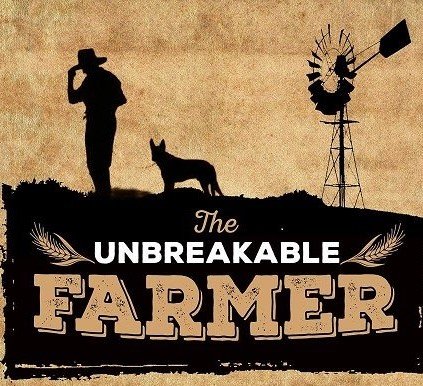Spiralling Mental Health in Farming Communities
Although extremely alarming, the findings of a wellbeing report into the mental health of farmers, commissioned by the National Farmers Federation and Norco, aren’t surprising to me.
Working closely with rural, regional and remote communities over the past 6 years as a speaker and mental health advocate, the findings of reports are reiterated in conversations in communities all over Australia. Not only with the farmers and communities, but also with the under resourced and over stretched members of support services, many of them also being farmers themselves, dealing with their own challenges while supporting others.
Key Findings:
Key finding of the report are alarming, are having a major ripple effect and endangering the very fabric of these communities.
1338 Australian farmers were interviewed shining the spotlight on their spiralling mental health.
*45% of those interviewed reported thoughts of self-harm or suicide.
*30% have attempted self-harm or suicide that is 401 people.
*64% have experienced anxiety and 45% have been depressed in the past few years. One in seven of those interviewed couldn’t access the support they need.
*47 per cent said weather, including natural disasters, had "triggered" their mental health issues.
* 88 per cent said their farming operations had been adversely affected by weather during the past five years, with an average cost of $1.4 million per farm.
* More female farmers experienced depression during the past five years (51 per cent), compared to men (43 per cent).
* More than a third (36 per cent) of female farmers say their mental health has declined in the past few years compared to one in four men.
Extreme weather events, disasters, financial stress, relationship breakdowns, and underlying depression are the key risk factors.
Life in regional Australia comes with its own set of unique challenges, and men in particular often find it hard to ask for help when they’re struggling. Instead, they close down and disconnect from their family and community.
I speak from Lived Experience:
I know this all to well. After facing mother natures unrelenting torment and a complete business and relationship breakdown with my parents, my mental health declined to the lowest of lows. The result of unrelenting drought saw my young family and I walking off our farm completely physically, emotionally and financially exhausted, which lead to one of the biggest challenges I had to face personally, which was the loss of my identity. I thought I was always going to be a farmer.
I believe we need to normalise the conversation around mental health. Mental health needs a whole of community approach to nurture a safe environment that makes it easier for people to speak up. I learnt three vital lessons from my own personal journey.
1. Communication is key.
2. Stay connected.
3. Seek help.
Supporting the mental health of communities is an intricate business with many stakeholders, governmental, organisational, and communities all aligning.
But at the grassroots developing a range of tools and a strong diverse support networks that not only support your own mental health and but help you support those around you. Stay posted as I will explore them in upcoming posts.
If you are struggling a visit to your GP is a priority.
To connect with me go to my website. www.theunbreakablefarmer.com.a/connect
If you need support reach out to Lifeline 13 11 14 or TIACS by calling or texting
0488 846 988 Mon-Fri 8am-10pm AEST
Warren Davies
